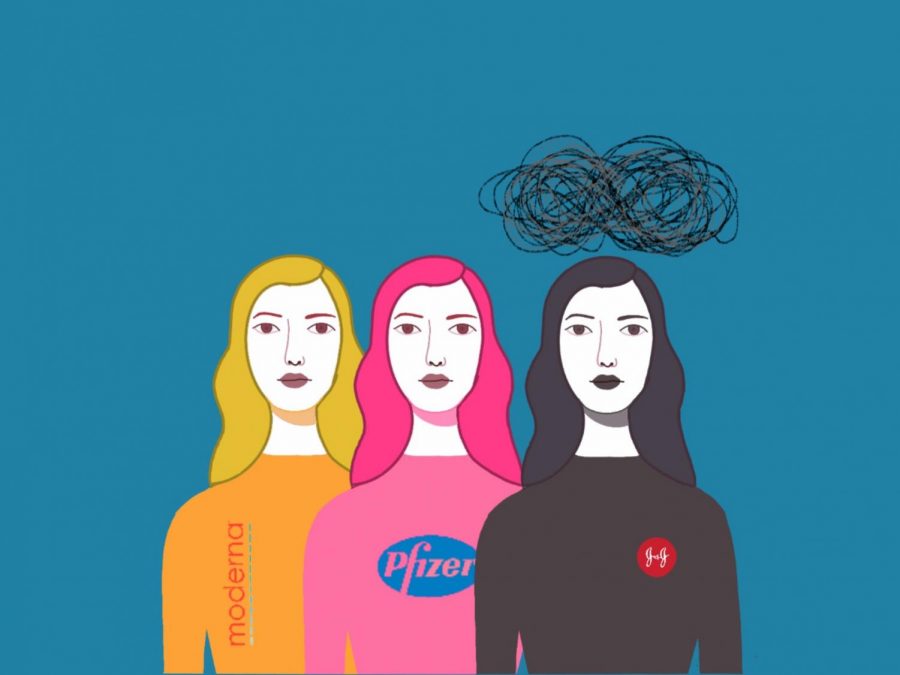Cases of Rare Blood Clots Arise in Receivers of Johnson and Johnson’s COVID-19 Vaccine
“People who have received the J&J vaccine who develop severe headache, abdominal pain, leg pain, or shortness of breath within three weeks after vaccination should contact their health care provider,” the CDC and FDA recommended. Staff illustration: Sophie Fang.
April 15, 2021
The Centers for Disease Control and Prevention (CDC) and Food and Drug Administration (FDA) issued a formal recommendation to pause the Johnson and Johnson COVID-19 vaccine distribution on April 13 after six cases of rare blood clots in the recipients came forward.
Six women were reported to have the blood clot a week to three weeks after their single-dose vaccination. One of the women died, and another has been hospitalized under critical condition in Nebraska, according to The New York Times. They range from ages 18 to 48.
Around 6.8 million Johnson and Johnson vaccines have been distributed across the U.S. The six women diagnosed with the certain blood clot, known as cerebral venous sinus thrombosis (CVST), also experienced low blood platelet levels.
The CDC and FDA released a joint statement in light of the recent cases. Principal Deputy Director of the CDC Dr. Anne Schuchat and Director of the FDA’s Center for Biologics Evaluation and Research Dr. Peter Marks are holding a meeting on April 14 to discuss the cases.
“Until that process is complete, we are recommending a pause in the use of this vaccine out of an abundance of caution,” the statement said.
The CDC and FDA see this pause as crucial to ensure time for health care providers to create a plan of recognition and treatment, according to the statement.
There are currently three authorized COVID-19 vaccines: Pfizer-BioNTech, Moderna and Johnson and Johnson/Janssen. The J&J vaccine is the only type to only require one shot, but this has not been correlated to the diagnosis of CVST.
The J&J vaccine and the Moderna vaccine are currently only available for individuals 18 years or older, while the Pfizer-BioNTech is available for individuals 16 years or older.
Sophomore Sam Sellers sees both sides of the story. Her older sister and Menlo alum Kristin Sellers took the J&J vaccine last Friday and experienced multiple symptoms following the vaccination for around 24 hours.
“It was scary, but I guess it is a good sign that it is strong and that it’s working. The Pfizer and Moderna vaccines seem to be more popular as they are viewed as more effective, but I honestly don’t know how I stand on it — I’m just glad that we’re able to get vaccines out at a fast rate,” Sellers said.
Despite the news, it is still advised that people take the COVID-19 vaccine. Vaccination prevents dangerous symptoms and serious illness if COVID-19 is contracted.
“Until we know more about how vaccines will affect the spread of COVID-19, people who are fully vaccinated against COVID-19 should keep taking precautions in public places,” according to the CDC.


